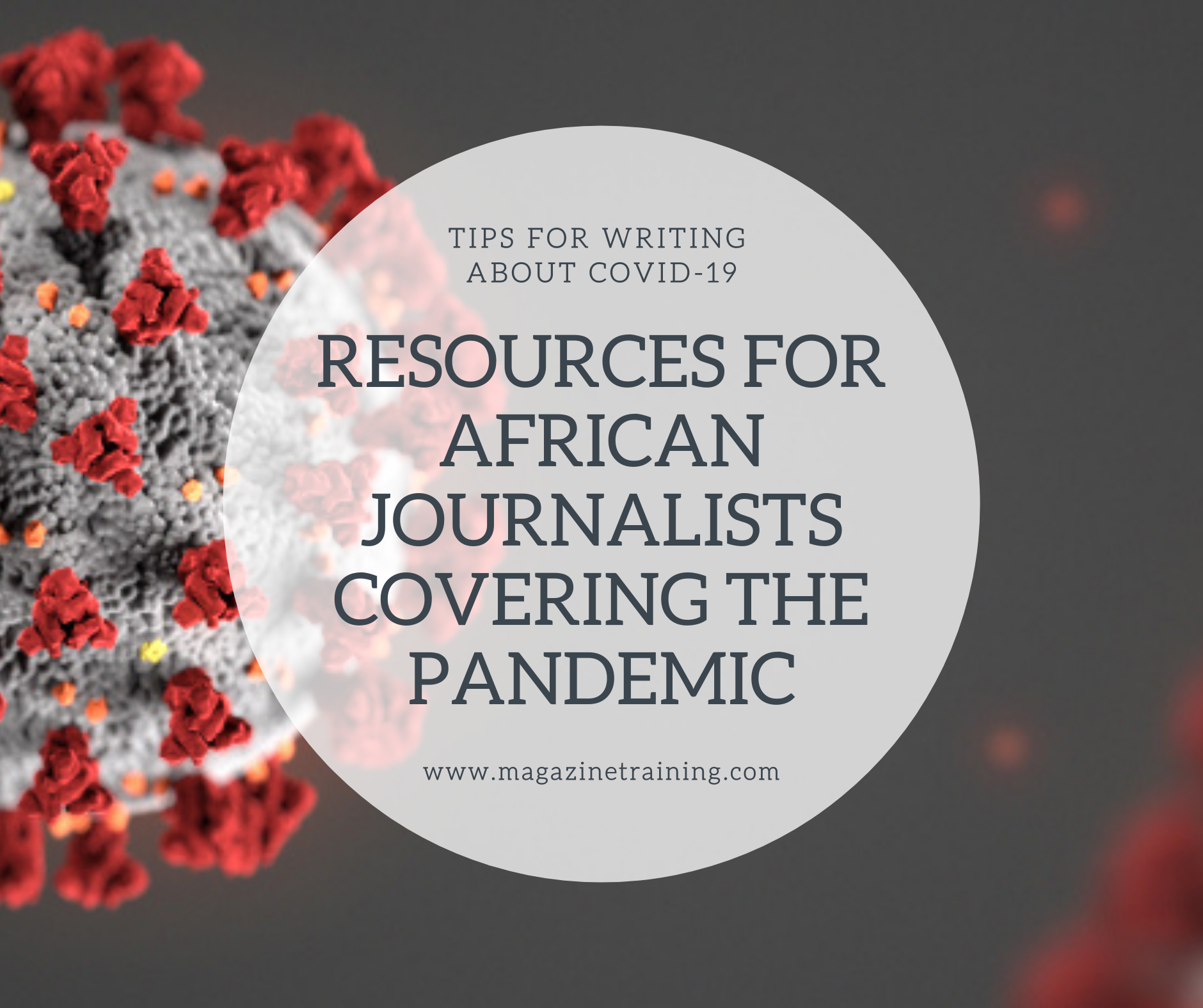
Cases of COVID-19 are rising in Africa, after the continent was initially spared of the pandemic in its early days. So far, 53 countries have reported cases of the disease, and governments continue to roll out measures to halt the spread. Media organizations on the continent are also ramping up their coverage, bearing in mind Africa’s unique context, including a lack of government data, strained media budgets, as well as health systems that have in the past struggled with handling endemic diseases. There is a lot to learn from global media outlets that have been covering the disease longer, while maintaining an African perspective on COVID-19.
Here are some reporting resources that can help journalists on the continent cover the pandemic:
Data
- The Africa Center for Disease Control (Africa CDC) provides regular reports with data on new cases, deaths, recoveries and transmission types. The information is gathered from public health institutes in member states.
- The World Health Organization (WHO) Africa Dashboard has Africa-related data, as well as updated situation reports on the COVID-19 outbreak on the continent.
- Mobile survey platform Geopoll is conducting remote surveys amongst citizens in Sub Saharan Africa to examine COVID-19 awareness levels, primary information sources, as well as knowledge of prevention measures. Access to the reports is free and includes data such as sources of information most popular among citizens, and citizens rating of local media’s coverage of the pandemic.
- Worldometer also provides live statistics tracking the number of confirmed cases, recovered patients and death toll by country.
- The Johns Hopkins Coronavirus Map tracks COVID-19 cases by country and region, including total confirmed and active cases. The university has also created a resource center with useful information from medical experts and analysis about the spread and impact of COVID-19.
Community
- ICFJ’s Global Health Crisis Reporting Forum connects journalists with some of the world’s top health practitioners, newsroom leaders and other experts, who can answer questions in live video chats. It’s also a place to connect with fellow journalists in Africa and across the globe for useful tips and collaboration.
- Gathering COVID-19 Resources is a Trello board developed by journalism project Gather, to organize and make available resources and information for journalists covering the pandemic. It includes tools, guides and frameworks on reporting the health crisis.
- On social media platforms, #COVID19Africa is a continuous source of discussion and information on how the virus is impacting the continent
Fact-checking
- Africa Check has created a live guide with all COVID-19 Africa related fact-checks in one place, as well as resources on how to vet information and fight fake news during a pandemic.
- In East Africa, PesaCheck has launched a dedicated WhatsApp line to report suspected misinformation and disinformation around COVID-19 in the region. Journalists can join the group via this form.
- Google’s Fact Check Explorer is also a useful tool for tracking global fact checks on COVID-19-related claims.
- Global Health Now’s Expert Reality Check is another online resource where global health experts debunk myths and false claims on COVID-19.
by Irene Wangui, International Journalists’ Network
Related posts
Magazine Training International’s mission is to encourage, strengthen, and provide training and resources to Christian magazine publishers as they seek to build the church and reach their societies for Christ.

